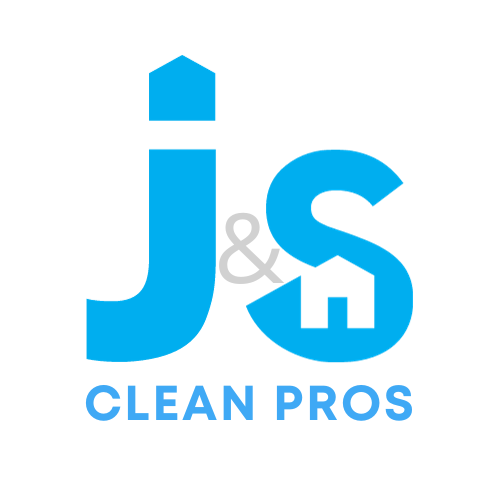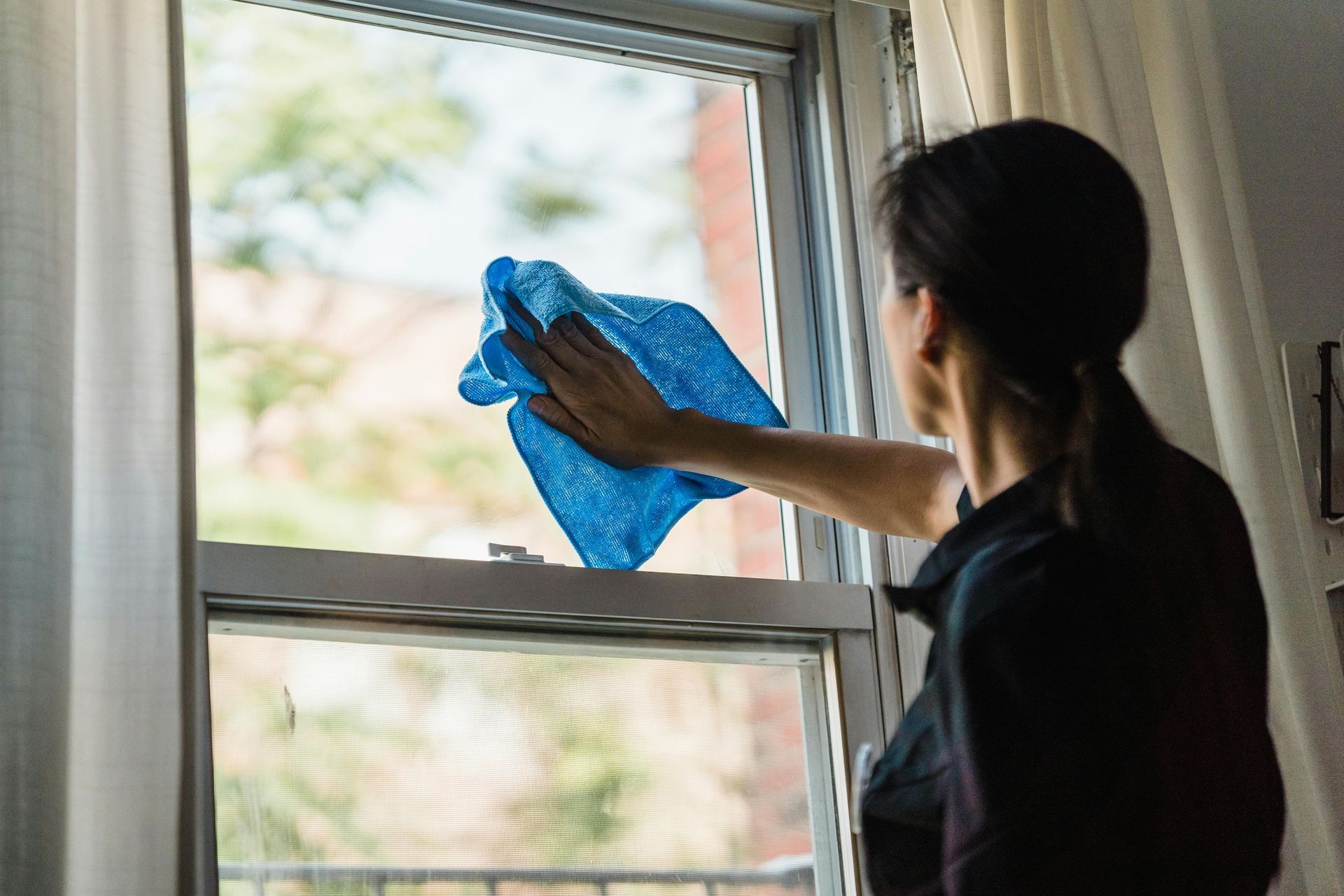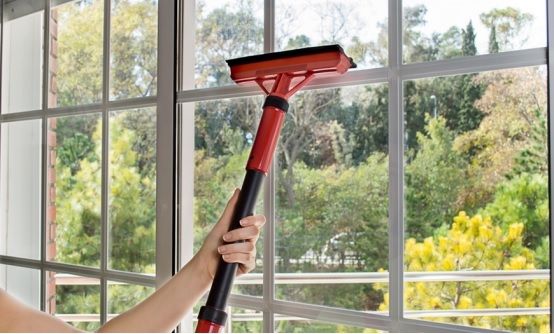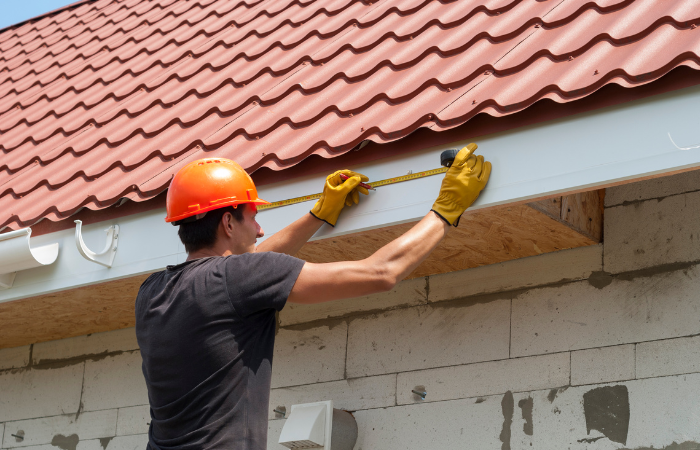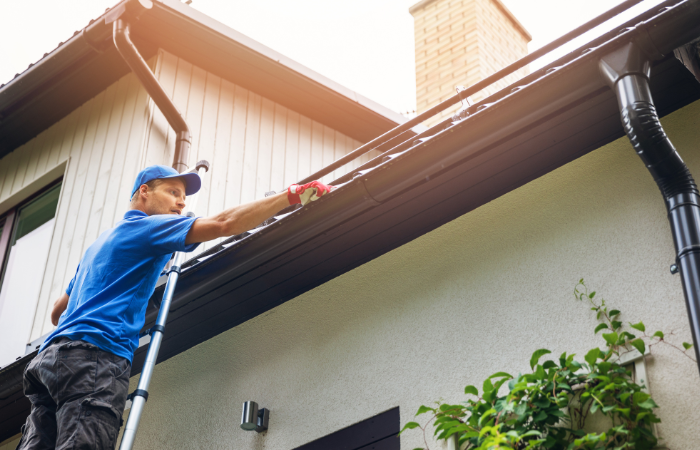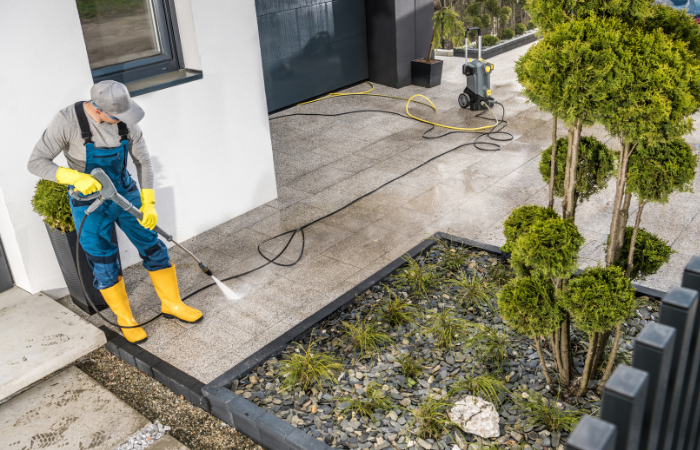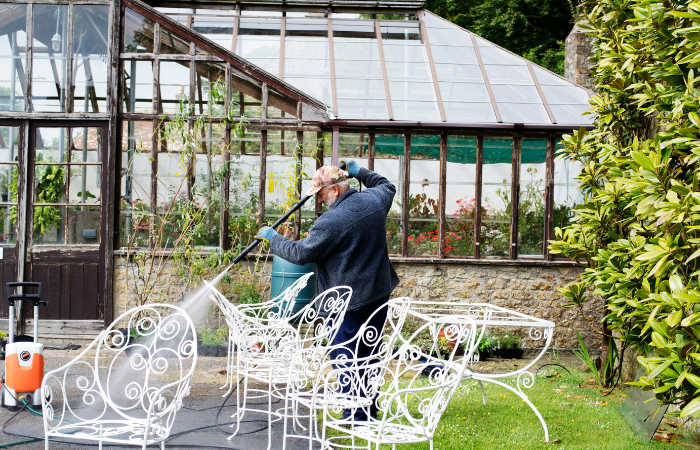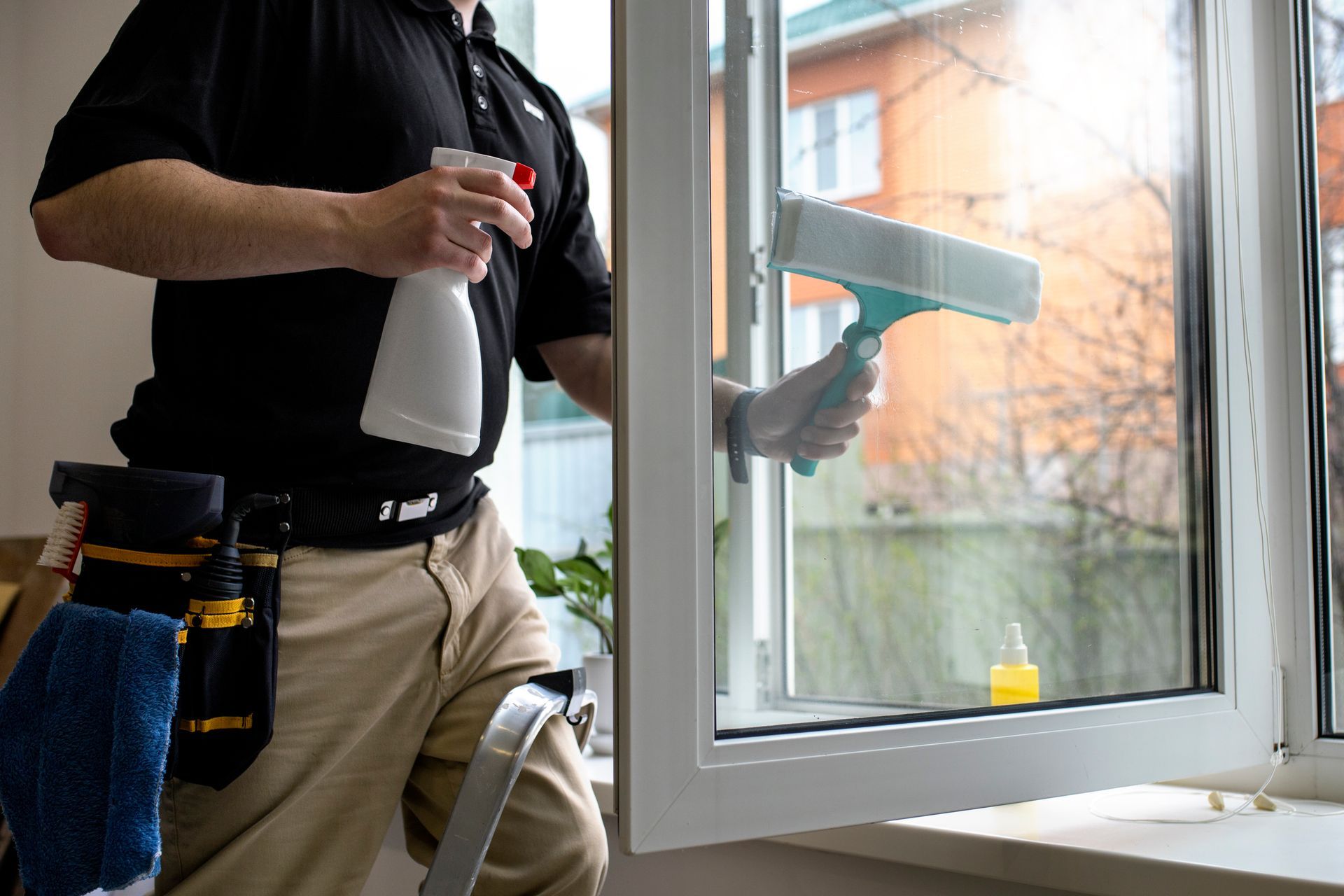Soft Washing vs. Power Washing: Understanding the Differences
Soft Washing vs. Power Washing: Understanding the Differences
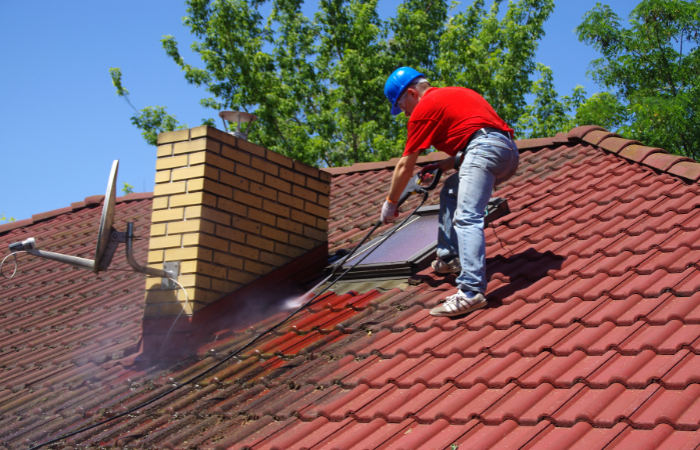
Homeowners and business proprietors often find themselves at a crossroads between two popular methods: soft washing and power washing. While both are effective in their respective domains, understanding their differences is vital for choosing the proper technique for your needs. This comprehensive guide discusses the intricacies of soft washing vs. power washing, their applications, and key considerations to help you make an informed decision.
What is Soft Washing?
Soft washing is a gentle cleaning method typically used on surfaces that are too delicate for high-pressure treatments. This technique involves the application of cleaning solutions at low pressure, which are then left to sit for a period, breaking down dirt and organisms like mold, mildew, and algae. After the solution has done its work, the surface is rinsed off with low-pressure water.
For optimal results and to ensure the protection of fragile surfaces, it's advisable to seek assistance from a
professional cleaning service proficient in soft washing techniques. Soft washing is particularly suited for surfaces such as:
Roof shingles- Wood panel siding
- Stucco and coquina
- Outdoor wood furniture
- Screens and enclosures
What is Power Washing?
Power washing utilizes high-pressure water to remove grime, dirt, and other debris from hard surfaces. This method is highly effective for cleaning areas that are heavily soiled and can withstand the force of the water. Power washing is often the go-to choice for tougher, more resilient surfaces such as concrete, brick, and stone. It's a favored method for large-scale or industrial cleaning projects due to its efficiency in stripping away unwanted layers and leaving surfaces pristine.
For best outcomes and to guarantee the safety of both the operator and the surfaces being cleaned, it's recommended to enlist the expertise of a
professional power washing service. Power washing is ideal for cleaning:
Concrete driveways and walkways- Brick and stone walls
- Parking lots
- Patios and decks made from durable materials
What is Power Washing?
Power washing utilizes high-pressure water to remove grime, dirt, and other debris from hard surfaces. This method is highly effective for cleaning areas that are heavily soiled and can withstand the force of the water. Power washing is often the go-to choice for tougher, more resilient surfaces such as concrete, brick, and stone. It's a favored method for large-scale or industrial cleaning projects due to its efficiency in stripping away unwanted layers and leaving surfaces pristine.
For best outcomes and to guarantee the safety of both the operator and the surfaces being cleaned, it's recommended to enlist the expertise of a
professional power washing service. Power washing is ideal for cleaning:
Concrete driveways and walkways- Brick and stone walls
- Parking lots
- Patios and decks made from durable materials
Key Considerations When Choosing Between Soft Washing vs. Power Washing
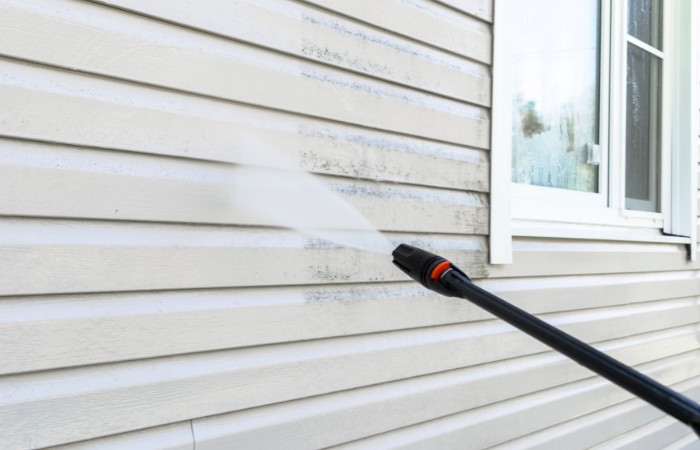
When making a choice between soft washing and power washing, it's crucial to weigh various factors when selecting the method most suitable for your cleaning requirements while safeguarding your property's condition. Here, we'll explore these considerations, offering insights to guide your decision-making process:
- Surface Material and Condition
The type of surface you're cleaning is perhaps the most crucial factor. Soft washing is recommended for more delicate materials such as wood siding, asphalt shingles, and older masonry that could be damaged by high pressure. Conversely, power washing is suitable for more rigid materials like concrete, brick, and dense stone.
Assessing the condition of the surface is also vital; if it's significantly damaged or weakened, a softer approach may be necessary. This ensures the longevity and integrity of your property while effectively addressing cleanliness.
- Level of Dirt and Type of Stains
Evaluate the level of dirt and the types of stains you're dealing with. Power washing is highly effective for removing heavy dirt, mud, grease, and rust stains. On the other hand, soft washing is better suited for eliminating organic growths such as mold, mildew, and algae, particularly on roofs and exterior walls where such growths are common. This method uses specialized cleaning solutions that penetrate and destroy these organisms without damaging the underlying material.
- Environmental Considerations
The environmental impact of your cleaning choice is another significant aspect. Soft washing typically uses chemical solutions that, while effective at killing organic matter, may pose risks to plants, animals, and waterways if not properly managed. Ensure that the chemicals used are eco-friendly and that runoff is adequately contained to prevent environmental contamination.
Power washing, while more water-intensive, generally uses fewer chemicals, but the runoff can still carry pollutants into storm drains. Choosing an environmentally responsible service can mitigate these concerns.
- Safety and Accessibility
Consider the safety and accessibility of the area to be cleaned. High-pressure washing can be hazardous if not handled correctly, posing risks not only to the operator but also to bystanders and nearby structures. Soft washing, with its lower pressure, generally presents fewer safety risks.
Moreover, choosing a
professional service near you for your cleaning needs ensures that the job is done efficiently and safely. Professionals are equipped with the right tools and techniques to access hard-to-reach areas without compromising their safety or the integrity of your property.
- Long-Term Maintenance and Cost
Finally, think about long-term maintenance needs and the cost-effectiveness of each method. Soft washing can offer longer-lasting results against organic growth due to the biocidal nature of its cleaning solutions, potentially reducing the frequency of cleanings and saving money in the long run.
Power washing may provide quicker, more immediate results, but it might need to be done more frequently, depending on the environment and the type of dirt involved, which can increase maintenance costs over time.
FAQs
Can soft washing damage landscaping?
If not done correctly, the chemicals used in soft washing can harm plants and landscaping. However, professional cleaning services take precautions such as wetting plants before and after the process and using eco-friendly solutions to minimize any risk.
Can I perform soft washing or power washing myself?
While DIY kits are available, professional services are recommended due to the potential risks of damage and the specialized equipment required. Professionals have the training and experience to choose the suitable method and pressure for different surfaces, ensuring a thorough and safe cleaning.
Is soft washing more expensive than power washing?
Generally, soft washing might cost a bit more because it uses special cleaning solutions and gentle techniques to protect surfaces. These extra materials and methods can add to the overall cost. However, the benefits of soft washing, like less risk of damage and longer-lasting cleanliness, might make it worth it in the long run. Consulting with professionals is recommended to determine the best choice for your situation.
Conclusion
Whether you opt for soft washing or power washing depends on various factors such as the surface material, level of dirt, and long-term maintenance needs. Understanding these differences is crucial for making an informed decision that protects both your property and the environment. Moreover, it's important to entrust these tasks to professionals who have the expertise and experience to assess your specific situation and provide the most effective and safe cleaning solution.
At J&S Clean Pros, we understand the nuances of both soft washing and power washing techniques. Our professional team has the knowledge and tools necessary to deliver exceptional results while prioritizing safety and environmental responsibility. If you're ready to restore the cleanliness and beauty of your home or business,
call us today.
